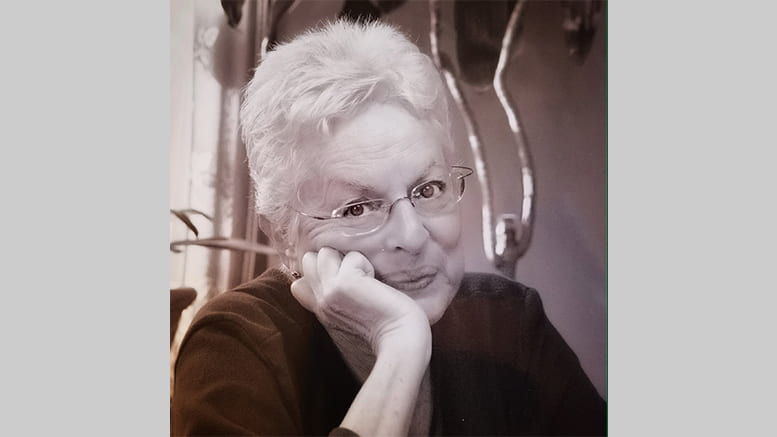Arlene Hirschfelder, a champion of Native American rights and friend to the Center for Native American & Indigenous Research (CNAIR) at Northwestern, died on August 21. She was 78 years old.
“Arlene was a fearless advocate for Native people. Her scholarship decried stereotypes, racist images, and tropes at a time when that wasn’t on the radar of most academics,” said Patty Loew Director of CNAIR.
As a Native American studies scholar and prolific author, Hirschfelder also was an avid book collector on Native American and Indigenous topics. Over the years, her collection amassed into an expansive personal library of 1,800 books and 65 journals of over 2,000 issues.
Hirschfelder resonated with CNAIR’s mission which advances scholarship, teaching, learning, artistic, and cultural practices related to Native American and Indigenous communities, priorities, histories, and lifeways.
Loew recalls the first time she met Hirschfelder and her husband, Dennis. The Hirschfelders were already very familiar with Northwestern since their son is a 1992 alumnus. “In spring 2018, Kathleen McDonald, then director of the Mitchell Museum of the American Indian, introduced me to the Hirschfelders via email. We communicated regularly and arranged to meet in person that December. That’s when Arlene and Dennis brought up the idea of donating Arlene’s library to the Center,” said Loew.
Loew and CNAIR staff were astounded when they discovered that Hirshfelder would donate her rare personal collection. CNAIR was just founded a year prior in 2017 as a hub for multi-disciplinary, collaborative work informed by and responsive to Native American and Indigenous nations, communities, and organizations.
“I was absolutely thrilled when the Hirschfelders asked if CNAIR would be interested in Arlene’s Library. Her work is seminal to the field of Native American Studies. That she chose our center to house her collection was really humbling,” Loew recounts.
The extensive collection also includes rare poetry books to small-run titles, cookbooks and art books, and issues of the Association of American Indian Affairs newsletter dating back to 1938.
In August 2020, the collection was packed and transported from Hirschfelder’s home to Northwestern.
In a Daily Northwestern interview from 2020 Hirschfelder explained how the collection could serve as a resource for the community: “These books deal with realities, with truths. The writers are so well-informed; that’s why I want all of these books used.”
Hirshfelder requested that the collection be split between CNAIR and the NU Library system to ensure the widest possible circulation.
Much like Hirschfelder’s lifework to educate people to cultivate compassion and understanding of Native American and Indigenous histories, priorities, and lifeways, CNAIR aims to connect educators and the community. Through a variety of modes of engagement for faculty, students, and staff, CNAIR facilities educational opportunities, community events, programming, and research.
Loew reflected on how Hirschfelder’s lifelong advocacy for education and collaboration mirrored what CNAIR strives to achieve.
“She approached her research with a sense of collaboration. She worked with Native authors and educators and never tried to speak for them. At CNAIR we try to be collaborative and community-minded, so Arlene’s work aligned well with our own.”
Recently, CNAIR collaborated with the Department of Anthropology and invited author, Chip Colwell to discuss his book, Plundered Skulls and Stolen Spirits.
To engage the community, CNAIR arranged to have Bill Quackenbush, the Ho-Chunk Nation’s Tribal Historical Preservation Officer speak with him. The talk facilitated an open, candid conversation about challenges and perceptions regarding sacred items of the tribes, museum collections, and Native American Graves Protection and Repatriation Act (NAGPRA).
“Colwell’s book explored museum collecting and NAGPRA. Quackenbush described the Ho-Chunk experience of having sacred items taken and how NAGPRA works or sometimes doesn’t work for tribes like his,” explained Loew.
Once the books are processed from the collection Hirschfelder donated, CNAIR plans to explore ways they can attract researchers to make use of the collection, as well as the collection donated in 2018 by another acclaimed Native American studies scholar and Northwestern alumnus, LaVonne Brown Ruoff. Loew hopes that the Hirschfelder collection will inspire new threads of research, especially in the field of education.
In the 2020 interview with the Daily Northwestern, Hirschfelder, a former resident of Evanston, Ill., shared why she felt Northwestern should be home for her collection. “I started thinking of places that might be interested,” Hirschfelder said. “They needed to go somewhere where there would be a lot of interest in Native people… They had to go somewhere special. And special to me (has) always been Northwestern.”

